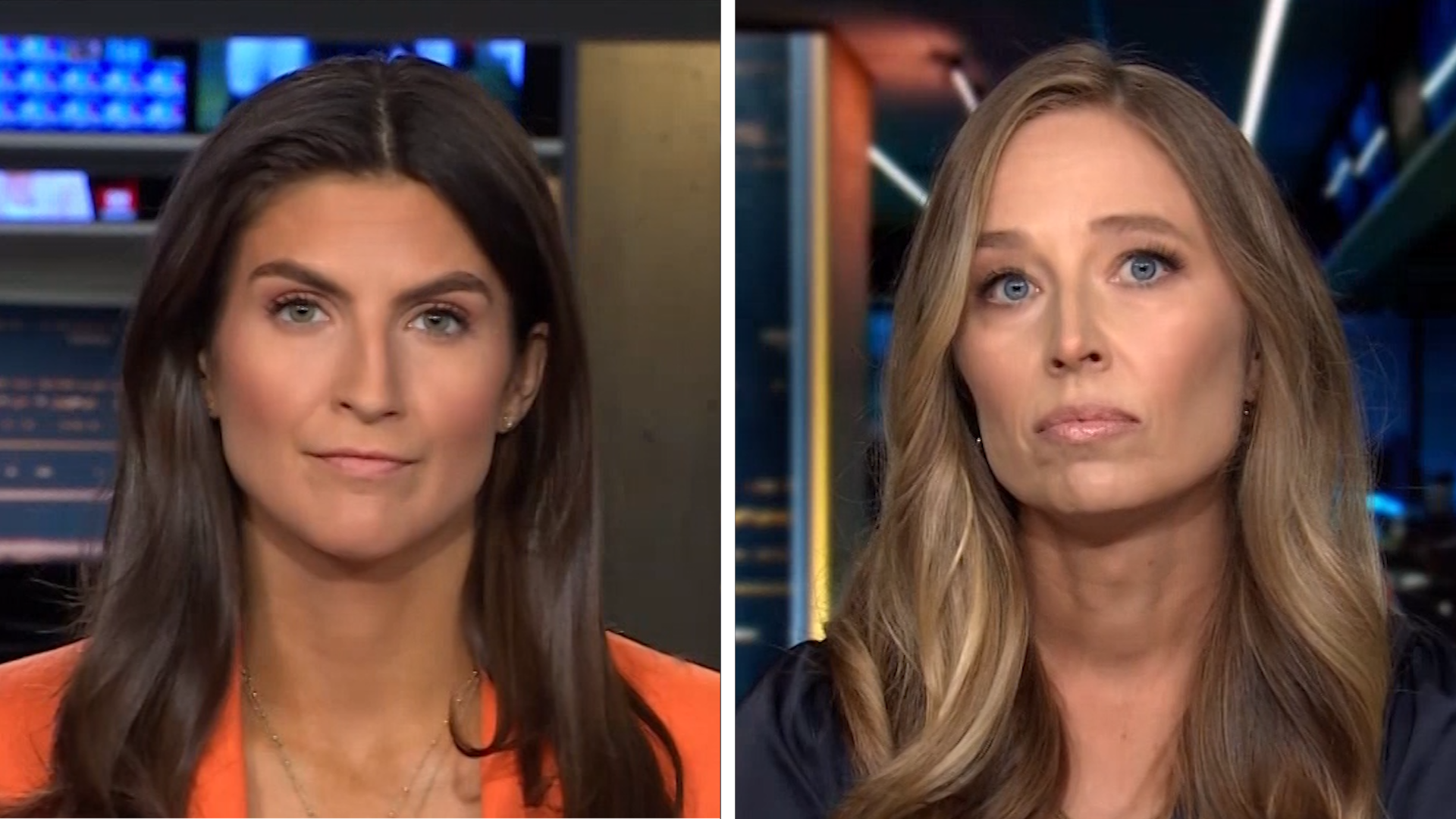
Former Prince Andrew
Entities mentioned:
- King Charles III: Duty, Legacy, Self-preservation
- Prince Andrew: Self-preservation, Pride, Fear
- Jeffrey Epstein: Power, Control, Greed
- Virginia Giuffre: Justice, Moral outrage, Recognition
Article Assessment:
Credibility Score: 75/100
Bias Rating: 55/100 (Center)
Sentiment Score: 30/100
Authoritarianism Risk: 35/100 (Generally Democratic)
Bias Analysis:
The article presents a relatively balanced view of the situation, including perspectives from multiple sides. However, there's a slight lean towards criticizing Prince Andrew and supporting the monarchy's decision.
Key metric: Public Trust in Monarchy
Let me tell you something - this is a GAME-CHANGING play by King Charles III! The monarchy's star player has just benched his own brother in a stunning fourth-quarter move. Prince Andrew, once a key player on the royal roster, has been stripped of his jersey and sent to the locker room. This is the kind of decisive coaching we've been waiting for, folks! The pressure's been mounting like it's the final seconds of a championship game, and King Charles has finally called the play. He's showing us a championship mentality, willing to cut even family ties to protect the team's reputation. Prince Andrew's connection to Epstein was like a career-ending injury, and now he's been put on the injured reserve list - PERMANENTLY. Virginia Giuffre's memoir is the ultimate game tape, exposing the royal family's weaknesses. This is a crucial defensive strategy for the monarchy, but will it be enough to win back the fans? I'm telling you right now, this is going to be a defining moment in the legacy of the British royal family!
- Read more about Former Prince Andrew
- Log in to post comments

10 key takeaways from DOJ’s release of Ghislaine Maxwell's Epstein interviews
Entities mentioned:
- Ghislaine Maxwell: Self-preservation, Loyalty, Influence
- Jeffrey Epstein: Power, Control, Greed
- Department of Justice: Justice, Duty, Transparency
- Donald Trump: Power, Influence, Self-preservation
- Bill Clinton: Influence, Legacy, Self-preservation
- Prince Andrew: Self-preservation, Pride, Influence
- Virginia Giuffre: Justice, Recognition, Moral outrage
Article Assessment:
Credibility Score: 65/100
Bias Rating: 55/100 (Center)
Sentiment Score: 30/100
Authoritarianism Risk: 35/100 (Generally Democratic)
Bias Analysis:
The article presents multiple perspectives and quotes directly from the interviews, showing an attempt at balance. However, the selection of 'top takeaways' may reflect some editorial bias in highlighting certain aspects over others.
Key metric: Public Trust in Institutions
As a social scientist, I analyze that this article's release of Ghislaine Maxwell's interviews significantly impacts public trust in institutions. The revelations about high-profile individuals and alleged cover-ups may erode confidence in political, legal, and social elite circles. Maxwell's claims, while potentially self-serving, shed light on a complex network of relationships and activities that intersect with powerful institutions. This could lead to increased public skepticism and demands for accountability, potentially affecting how citizens view and interact with various governmental and social institutions.

Epstein victims are a growing political threat to Trump
Entities mentioned:
- Jeffrey Epstein: Power, Control, Greed
- Donald Trump: Self-preservation, Power, Control
- Epstein victims: Justice, Recognition, Self-respect
- Pam Bondi: Loyalty, Duty, Self-preservation
- Ghislaine Maxwell: Self-preservation, Loyalty, Control
- Virginia Giuffre: Justice, Recognition, Self-respect
- Sky Roberts: Justice, Moral outrage, Recognition
- JD Vance: Loyalty, Ambition, Self-preservation
- Kash Patel: Loyalty, Duty, Self-preservation
- Annie Farmer: Justice, Recognition, Moral outrage
- Todd Blanche: Duty, Loyalty, Self-preservation
- Jennifer Freeman: Justice, Moral outrage, Professional pride
Article Assessment:
Credibility Score: 75/100
Bias Rating: 35/100 (Lean Left)
Sentiment Score: 25/100
Authoritarianism Risk: 45/100 (Mixed/Neutral)
Bias Analysis:
The article leans left, evidenced by its critical tone towards the Trump administration and sympathetic portrayal of Epstein's victims. While it presents factual information, the framing and language choices suggest a skeptical view of the administration's handling of the situation.
Key metric: Public Trust in Government Institutions
As a social scientist, I analyze that this article highlights a significant tension between political self-preservation and the pursuit of justice for victims of sexual abuse. The handling of the Epstein case by the Trump administration appears to prioritize political damage control over transparency and justice for the victims. This approach risks further eroding public trust in government institutions, particularly the Department of Justice. The victims' increasing vocalization and media attention could potentially shift public opinion and apply pressure on the administration to take more substantive action. The article suggests a growing political threat to Trump from the Epstein victims, which could impact his support base and overall public perception. The lack of representation of survivors in high-level meetings and the administration's apparent focus on political maneuvering rather than addressing victims' concerns indicate a disconnect between government actions and public expectations for justice and accountability.

In the Epstein scandal, like other Washington storms, the victims are an afterthought
Entities mentioned:
- Virginia Giuffre: Justice, Self-preservation, Recognition
- Jeffrey Epstein: Power, Control, Greed
- Ghislaine Maxwell: Power, Greed, Control
- Donald Trump: Self-preservation, Power, Control
- Prince Andrew: Self-preservation, Reputation, Denial
- Randee Kogan: Professional pride, Duty, Empathy
- Todd Blanche: Duty, Professional pride, Loyalty
Article Assessment:
Credibility Score: 75/100
Bias Rating: 40/100 (Lean Left)
Sentiment Score: 25/100
Authoritarianism Risk: 30/100 (Generally Democratic)
Bias Analysis:
The article leans slightly left, critiquing Trump and right-wing conspiracy theories more than other political actors. However, it maintains a focus on victims and includes multiple perspectives, balancing its overall presentation.
Key metric: Public Trust in Government Institutions
As a social scientist, I analyze that this article highlights the complex interplay between political power, media coverage, and the impact on victims in high-profile scandals. The Epstein case and its connections to influential figures like Trump and Prince Andrew demonstrate how victims' experiences can be overshadowed by political maneuvering and media sensationalism. This dynamic erodes public trust in government institutions, as it suggests that powerful individuals may escape scrutiny or consequences for their actions. The article's focus on the re-traumatization of victims and the dehumanizing effect of media coverage points to systemic issues in how society handles such cases, potentially leading to decreased faith in the justice system and political leadership.

An Epstein cover-up? Victims and allies suggest it’s happening now, under Trump
Entities mentioned:
- Donald Trump: Self-preservation, Power, Control
- Jeffrey Epstein: Power, Control, Greed
- Ghislaine Maxwell: Self-preservation, Loyalty, Power
- Virginia Giuffre: Justice, Recognition, Moral outrage
- Trump Administration: Self-preservation, Control, Power
- Epstein Victims: Justice, Moral outrage, Recognition
Article Assessment:
Credibility Score: 65/100
Bias Rating: 35/100 (Lean Left)
Sentiment Score: 25/100
Authoritarianism Risk: 45/100 (Mixed/Neutral)
Bias Analysis:
The article leans left, focusing on criticisms of the Trump administration and giving voice to Epstein's victims. While it presents factual information, the framing and emphasis on potential cover-ups by the Trump administration suggest a left-leaning perspective.
Key metric: Public Trust in Government
As a social scientist, I analyze that this article significantly impacts public trust in government. The allegations of a potential cover-up by the Trump administration regarding the Epstein case erode confidence in governmental transparency and justice. The victims' accusations of favorable treatment for Maxwell and lack of disclosure fuel suspicions of high-level corruption. This narrative challenges the administration's self-portrayal as anti-establishment and committed to exposing wrongdoing. The widespread belief among Americans that the government is hiding information about Epstein's clients further undermines trust. This situation highlights the tension between political self-preservation and the public's demand for transparency, potentially deepening existing divides in public opinion about governmental integrity.

Ghislaine Maxwell’s prison transfer adds to Trump’s Epstein morass
Entities mentioned:
- Ghislaine Maxwell: Self-preservation, Security, Freedom
- Donald Trump: Self-preservation, Power, Control
- Jeffrey Epstein: Power, Control, Greed
- Todd Blanche: Loyalty, Professional pride, Influence
- Bureau of Prisons: Duty, Control, Security
- Justice Department: Justice, Control, Duty
- Virginia Giuffre: Justice, Recognition, Self-respect
Article Assessment:
Credibility Score: 75/100
Bias Rating: 35/100 (Lean Left)
Sentiment Score: 25/100
Bias Analysis:
The article leans left in its framing, focusing critically on Trump administration actions and emphasizing potential improprieties. While it presents factual information, the tone and selection of details suggest a skeptical view of the administration's handling of the Epstein-Maxwell case.
Key metric: Government Transparency and Accountability
As a social scientist, I analyze that this article highlights significant concerns about the Trump administration's handling of the Epstein-Maxwell case, potentially impacting government transparency and accountability. The unusual prison transfer of Ghislaine Maxwell, coupled with the administration's lack of transparency regarding meetings and document disclosures, raises questions about potential favoritism or interference in the justice process. This situation could erode public trust in governmental institutions and the rule of law. The article suggests a pattern of behavior that may be perceived as attempts to control information or influence potential witnesses, which could have far-reaching implications for the integrity of the justice system and the public's perception of governmental fairness and accountability.